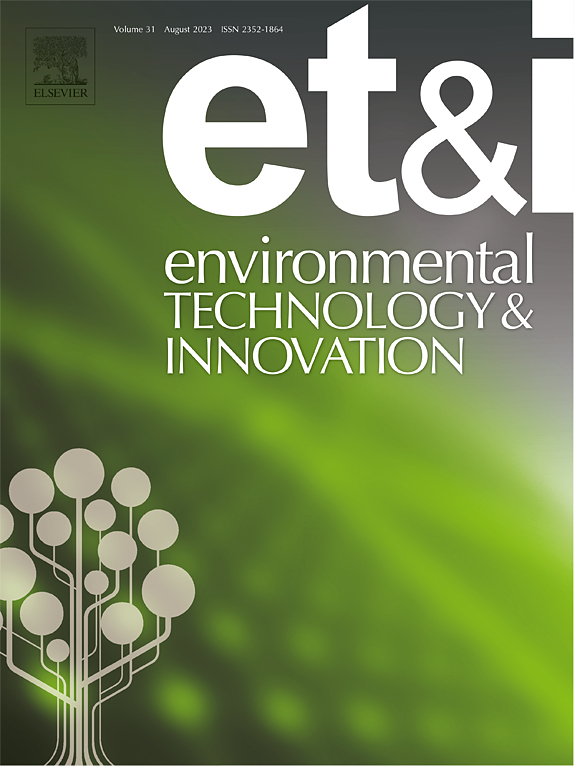Biodegradation of low-density polyethylene plastics by cellulolytic Pseudomonas aeruginosa isolated from the rumen of Swamp buffalo and the in vitro end-product characteristics
IF 6.7
2区 环境科学与生态学
Q1 BIOTECHNOLOGY & APPLIED MICROBIOLOGY
引用次数: 0
Abstract
Plastic waste, particularly from packaging materials, has become a significant environmental concern due to its slow degradation and widespread use. Low-density polyethylene (LDPE), commonly used in plastic bags and packaging, is resistant to biodegradation due to its hydrophobic backbone and high thermal stability. This study aimed to investigate the potential of plastic-degrading bacteria isolated from the microbiome of Swamp buffaloes (Bubalus bubalis) to degrade LDPE plastic. Twelve bacterial isolates were screened for plastic-degrading capabilities using Pseudomonas-Centimide agar, and identified via 16S rDNA sequencing. Four strains, identified as Pseudomonas aeruginosa NCTC13620 (accession no. MK332579.1), Khon Kaen University (KKU) -LDPE4, KKU-LDPE5, KKU-LDPE8, and KKU-LDPE9, exhibited high cellulolytic activity based on cellulose and starch hydrolysis. The biodegradation and biofilm formation potential of these strains were evaluated in in vitro gas fermentation experiments conducted over 10, 20, and 30-day incubation periods. Results showed that P. aeruginosa KKU-LDPE4 significantly enhanced microbial population growth, from log 6.6–7.9 CFU/mL, and increased the pH from 6.60 to 6.62 by the end of the 30-day incubation. Additionally, carbon dioxide production increased significantly (p < 0.05), along with a weight loss of 2.66 % in the LDPE fragments, while methane production remained negligible. These findings suggest that P. aeruginosa KKU-LDPE4 holds promise as an effective microbial candidate for LDPE plastic biodegradation. The study highlights the potential of using bacterial strains for eco-friendly solutions to plastic waste degradation.
求助全文
约1分钟内获得全文
求助全文
来源期刊

Environmental Technology & Innovation
Environmental Science-General Environmental Science
CiteScore
14.00
自引率
4.20%
发文量
435
审稿时长
74 days
期刊介绍:
Environmental Technology & Innovation adopts a challenge-oriented approach to solutions by integrating natural sciences to promote a sustainable future. The journal aims to foster the creation and development of innovative products, technologies, and ideas that enhance the environment, with impacts across soil, air, water, and food in rural and urban areas.
As a platform for disseminating scientific evidence for environmental protection and sustainable development, the journal emphasizes fundamental science, methodologies, tools, techniques, and policy considerations. It emphasizes the importance of science and technology in environmental benefits, including smarter, cleaner technologies for environmental protection, more efficient resource processing methods, and the evidence supporting their effectiveness.
 求助内容:
求助内容: 应助结果提醒方式:
应助结果提醒方式:


